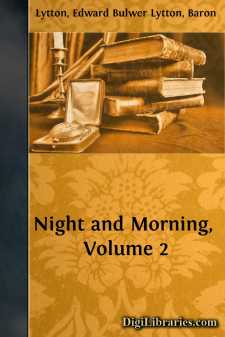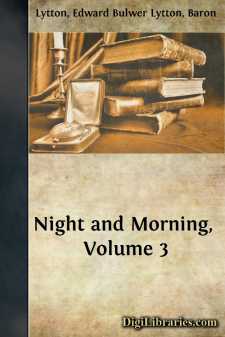Categories
- Antiques & Collectibles 13
- Architecture 36
- Art 48
- Bibles 22
- Biography & Autobiography 813
- Body, Mind & Spirit 142
- Business & Economics 28
- Children's Books 17
- Children's Fiction 14
- Computers 4
- Cooking 94
- Crafts & Hobbies 4
- Drama 346
- Education 46
- Family & Relationships 57
- Fiction 11829
- Games 19
- Gardening 17
- Health & Fitness 34
- History 1377
- House & Home 1
- Humor 147
- Juvenile Fiction 1873
- Juvenile Nonfiction 202
- Language Arts & Disciplines 88
- Law 16
- Literary Collections 686
- Literary Criticism 179
- Mathematics 13
- Medical 41
- Music 40
- Nature 179
- Non-Classifiable 1768
- Performing Arts 7
- Periodicals 1453
- Philosophy 64
- Photography 2
- Poetry 896
- Political Science 203
- Psychology 42
- Reference 154
- Religion 513
- Science 126
- Self-Help 84
- Social Science 81
- Sports & Recreation 34
- Study Aids 3
- Technology & Engineering 59
- Transportation 23
- Travel 463
- True Crime 29
Sort by:
CHAPTER XVII. When the scenes in some long diorama pass solemnly before us, there is sometimes one solitary object, contrasting, perhaps, the view of stately cities or the march of a mighty river, that halts on the eye for a moment, and then glides away, leaving on the mind a strange, comfortless, undefined impression. Why was the object presented to us? In itself it seemed comparatively insignificant....
more...
CHAPTER XV. The entrance of a servant, announcing a name which Harley, in the absorption of his gloomy revery, did not hear, was followed by that of a person on whom he lifted his eyes in the cold and haughty surprise with which a man much occupied greets and rebukes the intrusion of an unwelcome stranger. "It is so long since your Lordship has seen me," said the visitor, with mild dignity,...
more...
Much has been written by critics, especially by those in Germany (the native land of criticism), upon the important question, whether to please or to instruct should be the end of Fiction—whether a moral purpose is or is not in harmony with the undidactic spirit perceptible in the higher works of the imagination. And the general result of the discussion has been in favour of those who have contended...
more...
Much has been written by critics, especially by those in Germany (the native land of criticism), upon the important question, whether to please or to instruct should be the end of Fiction—whether a moral purpose is or is not in harmony with the undidactic spirit perceptible in the higher works of the imagination. And the general result of the discussion has been in favour of those who have contended...
more...
CHAPTER I. "Incubo. Look to the cavalier. What ails he? . . . . . Hostess. And in such good clothes, too!" BEAUMONT AND FLETCHER: Love's Pilgrimage. "Theod. I have a brother—there my last hope!. Thus...
more...
CHAPTER I. "The knight of arts and industry, And his achievements fair." THOMSON'S Castle of Indolence: Explanatory Verse to Canto II. In a popular and respectable, but not very fashionable quartier in Paris, and in the tolerably broad and effective locale of the Rue ——, there might be seen, at the time I now treat of,...
more...
CHAPTER I. "O that sweet gleam of sunshine on the lake!" WILSON'S City of the Plague If, reader, you have ever looked through a solar microscope at the monsters in a drop of water, perhaps you have wondered to yourself how things so terrible have been hitherto unknown to you—you have felt a loathing at the limpid element you hitherto deemed so...
more...
CHAPTER I. "Per ambages et ministeria deorum."—PETRONTUS. [Through the mysteries and ministerings of the gods.] Mr. Roger Morton was behind his counter one drizzling, melancholy day. Mr. Roger Morton, alderman, and twice mayor of his native town, was a thriving man. He had grown portly and corpulent. The nightly potations of brandy and water, continued year after year with mechanical...
more...
CHAPTER I. Say, ye oppressed by some fantastic woes, Some jarring nerve that baffles your repose, Who press the downy couch while slaves advance With timid eye to read the distant glance, Who with sad prayers the weary doctor tease To name the nameless, ever-new disease, Who with mock patience dire complaints endure, Which real pain and that alone can cure, How would you bear in real pain to lie...
more...
It is fully fifteen, if not twenty, years since my father commenced the composition of an historical romance on the subject of Pausanias, the Spartan Regent. Circumstances, which need not here be recorded, compelled him to lay aside the work thus begun. But the subject continued to haunt his imagination and occupy his thoughts. He detected in it singular opportunities for effective exercise of the...
more...











